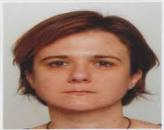Renowned Speakers

David H. Van Thiel
University Medical Center, USA, USA

Dimitar tonev
Senior medical director, UK, UK

Antonio Iannetti
University “La Sapienza†Roma, Italy, Italy

Céline Tiffon
University Hospital Bern, Switzerland, Switzerland

Fong-Fong Chu
Henan University of Science and Technology, USA, USA

Bashar Attar
Rush University Medical Center, USA, USA

Jay-lin Jane
Iowa State University USA, USA

Pierluigi Fracasso
Secretary of the European Society of Primary Care Gastroenterology, Italy, Italy
Recommended Global Gastroenterology Webinars & Conferences
Europe & UK
Asia Pacific & Middle East
Canada
HEPATITIS 2026
To Collaborate Scientific Professionals around the World
Conference Date June 18-19, 2026
For Sponsors & Exhibitors
Speaker Opportunity
Useful Links
Past Conference Report
Supported By
All accepted abstracts will be published in respective Conference Series International Journals.
Abstracts will be provided with Digital Object Identifier by
